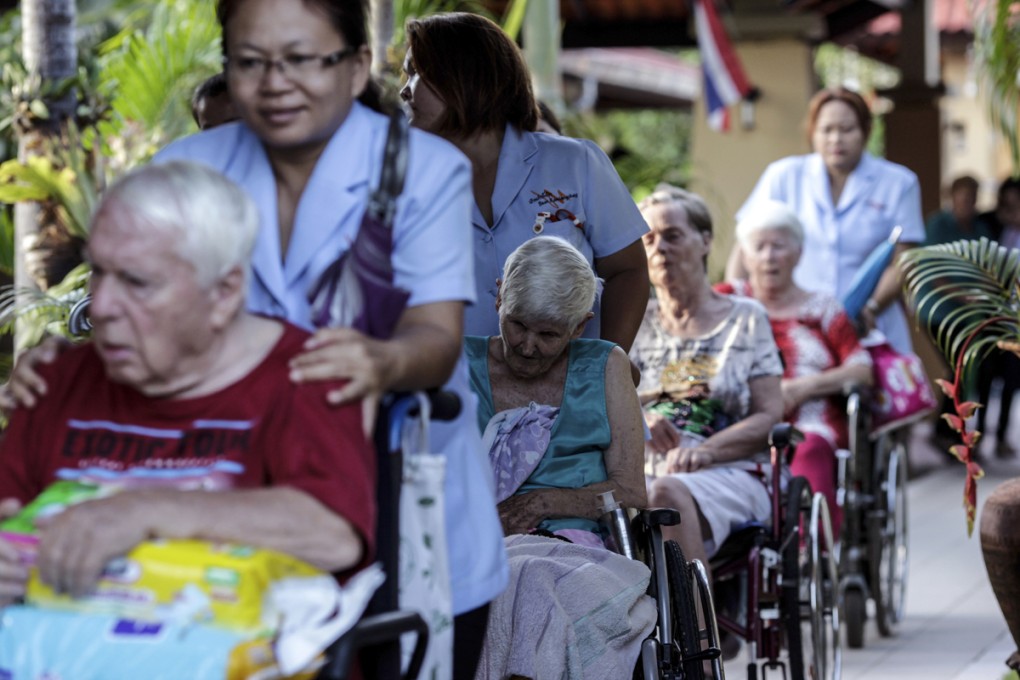The little touches
Luxury facilities in Chiang Mai are taking in Western Alzheimer’s sufferers whose families cannot find, or afford, adequate care at home, writes Carol Isoux

They make for an odd couple: he is a European octogenarian, wearing a red cap; she is in her 20s and sports a bag in the shape of a teddy bear. They are holding hands and strolling down a flower-lined path.
This is Thailand, so it’s possible they are another of the many couples in the Land of Smiles looking to each other for sexual favours (him) or money (her)?
But they are not. Victor, 84, has Alzheimer’s disease, Amporn is his caregiver. And they are going to a daily meeting at the swimming pool with other patients, or, as they are known in this medical facility in Faham, near Chiang Mai, “guests”.
They join Gerhart, 64, who is agitated and mumbling in broken German, a lively and youthful-looking Margrit and dozens of others. Guests and staff are playing ball, swimming and splashing around like a group a teenagers. The laughter is loud and the music cheerful. Caregivers are never too far from the elderly they look after – and there is a lot of touching.
“It’s all about giving them a warm feeling,” explains Martin Woodtli, the Swiss founder and director of the Baan Kamlangchay care home. “From my experience with Alzheimer’s disease, I learned that this is really what matters the most.”

Woodtli has received more than 100 patients in the 10 years his centre has been in operation and he has developed a unique method of treating them.